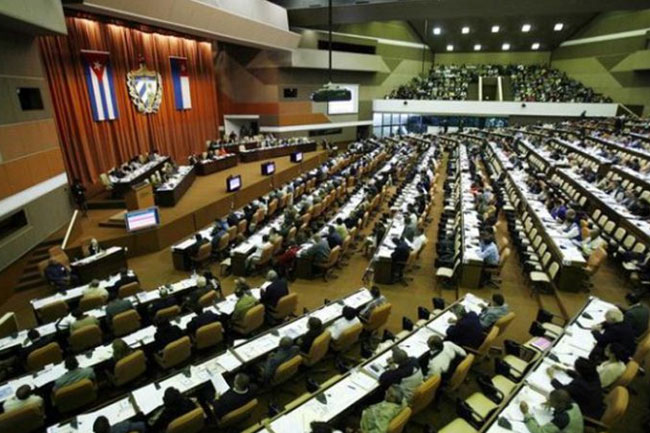Cuban parliamentarians reject European Parliament’s Non-Legislative Resolution regarding the island
Granma | Friday, 7 July 2017 | Click here for original article

On July 5, the European Parliament endorsed a legislative resolution for the provisional implementation of the Political Dialogue and Cooperation Agreement between the European Union (EU) and Cuba, signed on December 12, 2016; which aims to promote the development of diplomatic and economic relations between the EU and the Cuba.
However, according to the Business Times, an anti-Cuba non-legislative resolution was added "in an effort to placate opponents of the deal". The European Parliament adopted the non-legislative resolution on Wednesday "in which MEPs urged the EU to assist 'the economic and political transition in Cuba' including towards 'democratic standards', the Business Times reported.
The Granma report on the anti-Cuba resolution can be read below:
The International Relations Commission of the National Assembly of People’s Power issued a statement expressing its strong rejection of “the unacceptable Resolution on Cuba that has just been adopted by the European Parliament,” this Thursday, July 6.
Cuba parliamentarians note that such a resolution “runs counter to the principles of respect, equality and reciprocity contained in the Political Dialogue and Cooperation Agreement that was signed in Brussels on December 12, 2016, by Cuba, the European Union and its member States,” which was approved by the European Parliament on Wednesday, July 5, with 567 votes in favor, 61 against and 31 abstentions.
According to the statement, published on the National Assembly of People’s Power (Cuban Parliament) website, the resolution “distorts our reality, suggests recipes that Cuba does not need, interferes in the internal affairs of States and raises arguments that are extremely harmful to the sovereignty of the Cuban people.”
Cuban deputies also emphasised that “The Resolution adopted by the European Parliament stands in contrast to the positive development of Cuba’s relations with the European Commission, the European External Action Service and the member States of that community bloc,” and is of “a remarkable colonialist content,” attempting to “lecture on democracy and human rights, ignoring that the unilateral, discriminatory and selective policies that characterized the European Union position towards Cuba in the past have been superseded.”
Another aspect highlighted in the International Relations Commission statement is that the Non-Legislative Resolution of the European Parliament does not make any direct reference to the “economic, commercial and financial blockade imposed by the United States against Cuba, which is contrary to international law and violates the human rights of the Cuban people.”
“We don’t recognise the European Parliament as being entitled in any way to address issues that are of the exclusive competence of the Cuban people, who continue to build their socialist, democratic, sovereign and independent future,” the statement concludes.
The statement can be read in full here






